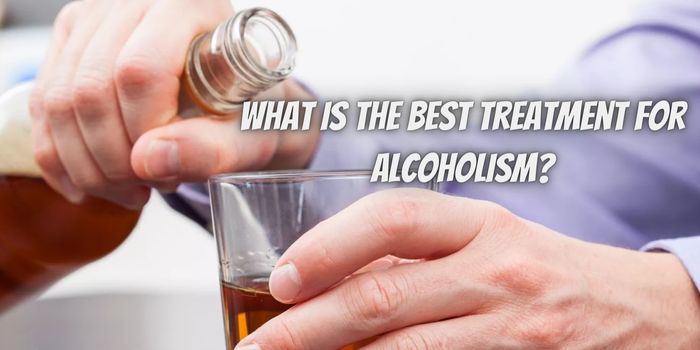What Is the Best Treatment for Alcoholism?
Alcohol is one of the most commonly abused substances in America, yet it is an integral part of personal and societal celebrations for many people. It has been deemed both a blessing and a curse as its use can quickly transform from socially acceptable to problematic or even dependent drinking. As Pacific Ridge reports, alcoholism affects millions of Americans each year, making treatment essential for their recovery. The good news is that there are several treatments that can help individuals overcome their addiction. Here, we explore some of these more popular options.
Detoxification
This process involves removing all traces of alcohol from the body, which can be achieved through medically supervised withdrawal. The symptoms of alcohol withdrawal can vary from mild to severe and, in some cases, even life-threatening.
Detoxification can be done in an inpatient or outpatient setting, depending on the severity of the addiction. Inpatient detoxification offers 24-hour medical monitoring and support, whereas outpatient detoxification involves regular check-ins with a healthcare provider.
During detoxification, medications may be given to manage withdrawal symptoms and prevent cravings. These medications include benzodiazepines, which can help ease anxiety and insomnia, and naltrexone, which can reduce the urge to drink.
See a Therapist or Counselor
Seeing a therapist or counselor can be the best treatment for alcoholism because they can provide you with the skills and strategies to maintain your sobriety long-term. They can help you change your behaviors that lead to drinking and deal with any triggers or stressors. Additionally, they can assist in building a strong support system and setting and achieving goals.
One-on-one therapy can help address underlying mental health issues like anxiety or depression that may contribute to alcohol use. In addition, couples or family therapy may be beneficial, as alcohol use can significantly impact those close to you.
A short, focused counseling session may be all that some people need, while others may require longer-term therapy. Working with a therapist or counselor can give you the tools and support you need to overcome alcoholism and achieve lasting recovery.
Medications
There are several medications that can be used for alcoholism treatment. Disulfiram, also known as Antabuse, can make you feel sick or throw up if you drink. This might not sound appealing, but it can be very effective in helping to deter people from drinking.
Acamprosate, or Campral, is another medication that can be helpful for people with alcohol use disorder. It helps to reduce cravings, which can be a powerful trigger for relapse. This can make it easier for people to stay sober over the long term.
Naltrexone, or Revia, is a medication that blocks the high you get from drinking. This can help to reduce the reward of drinking, making it less appealing. As with other medicines, it can be an effective tool to help people stay sober.
If you’re struggling with alcohol use disorder, talk to your doctor about which medication might be right for you. With the right medication and support, you can overcome alcoholism and live a healthier, happier life.
Find Support
Surrounding yourself with family, friends, and individuals who support your sobriety goal is crucial. Make it clear that you are no longer drinking, and request their encouragement and understanding.
Additionally, consider connecting with a support group or therapist who can offer practical tools, advice, and guidance as you navigate the challenges of staying sober. These resources can provide a safe and understanding space to share your struggles and triumphs while offering accountability and motivation.
Aside from traditional support avenues, a plethora of online communities and resources are available to those in recovery. From virtual support groups to mindfulness apps, these tools can provide supplementary support and improve your overall mental and emotional well-being.
Join a Group
Joining a group can be a life-changing decision for someone struggling with alcoholism. In group therapy, members share their experiences and offer each other support and guidance. This type of support can provide a level of understanding that can be difficult to find elsewhere. It also helps to break the cycle of isolation and loneliness that often accompany alcoholism.
In a group setting, participants can learn from each other’s successes and failures and receive feedback from others who have been there before. Group therapy also helps individuals feel accountable for their actions, as they are surrounded by people who have similar struggles and can offer support and encouragement.
Research has shown that group therapy can be just as effective, if not more effective, than individual therapy for treating alcoholism. It can lead to improved mental health, reduced alcohol consumption, and a higher long-term recovery rate.
Alcoholism is a debilitating disease that affects millions of people around the world. While many treatment options exist for those struggling with alcohol addiction, it can be difficult to determine the best. However, with the help of professional medical and psychological support, a combination of medication and therapy can be effective in helping individuals overcome their addiction and achieve long-term sobriety.














Post Comment
You must be logged in to post a comment.